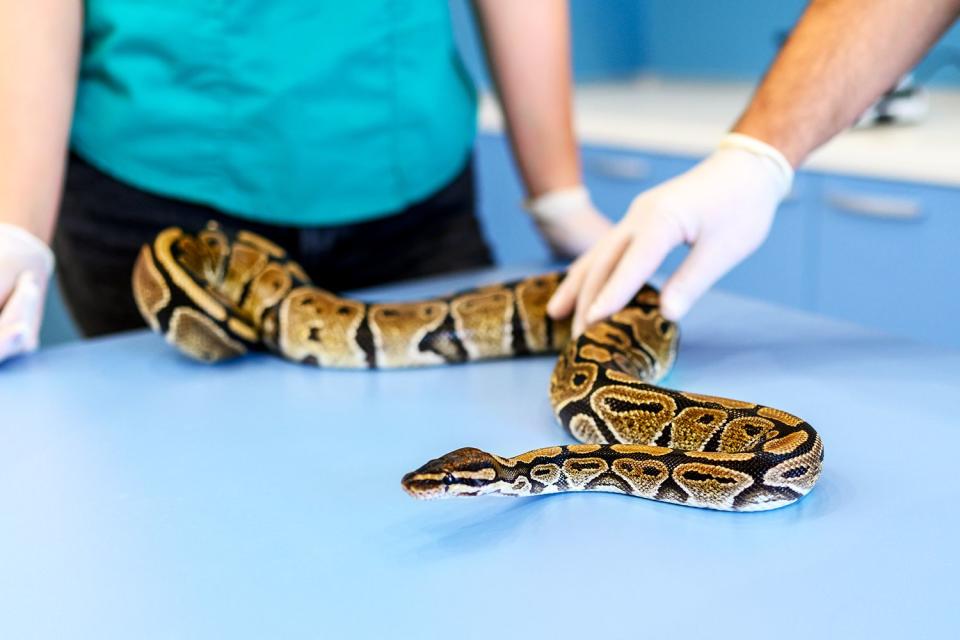Medical Workers Ask Venomous Snake Bite Victims to Stop Bringing Snakes to the Hospital
Workers at Australian hospitals said they don't need to see the snake that bit someone to determine treatment

dardespot/Getty
A python snake at an animal hospital (stock photo)Australian hospitals want snake bite victims to know that they don't need to bring the snake that bit them to the hospital to determine treatment.
Adam Michael, the director of emergency medicine at Bundaberg Hospital, told the Australian Broadcasting Company (ABC) that emergency workers at Bundaberg Hospital and other facilities in Queensland's Wide Bay region had been forced to deal with several venomous snakes this year because snake bite victims brought the reptiles in, thinking it would help them determine if they needed anti-venom.
According to ABC, in early April, an individual brought an eastern brown snake in a plastic food container after the reptile bit them. The eastern brown snake has "extremely potent" venom, per The University of Melbourne.
Michael said the plastic container containing the snake was not well-secured.
"The staff got a fright and the serious consequence of that is it delays people's time to treatment," he told the outlet.
Related: Rattlesnake Gives 2 Friends Nightmare Fuel After They Catch Reptile Swimming Toward Them
Along with putting hospital workers and patients at risk, snake bite victims who bring snakes to the emergency room also put themselves in even more danger.
"Any attempts to either get close to a snake to catch or to kill, or to photograph the snake, just puts people at risk," Michael said.
Never miss a story — sign up for PEOPLE's free daily newsletter to stay up-to-date on the best of what PEOPLE has to offer, from juicy celebrity news to compelling human interest stories.
Geoff Isbister, a clinical toxicology researcher at the University of Newcastle, told ABC that bringing the snake that bit you to the hospital is not helpful for treatment because most hospital workers don't know how to correctly identify a snake. Hospital workers do know how to appropriately treat a snake bite, regardless of the species that inflicted the wound.
"We can determine if you need anti-venom and, if so, what anti-venom you need based on clinical signs, blood tests, and also the snake venom detection kits that we keep here at the hospital," he said," he said.
To help hospital workers with this process, Michael said it's important to "apply a firm pressure immobilization bandage" to the wound but not to wash it.
Wide Bay Hospital & Health Service, which includes Bundaberg Hospital, shared tips on how to handle snake bites last year after experiencing issues with snakes in the emergency room.
The health service advised avoiding washing the wound, firmly bandaging the wound area, and keeping the affected area immobilized to slow the spread of venom.
"Applying a tourniquet, cutting the wound, sucking the venom or bringing the snake with you to emergency are not recommended," the agency added.
For more People news, make sure to sign up for our newsletter!
Read the original article on People.


